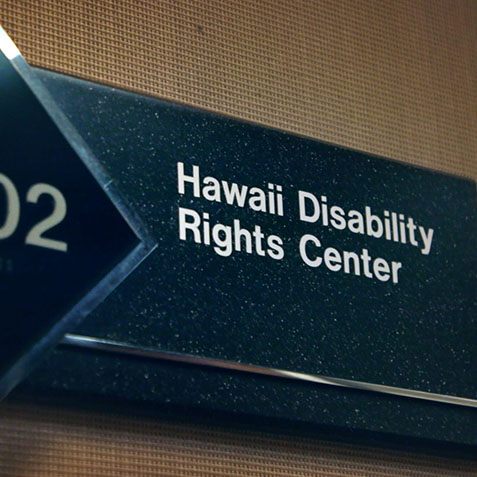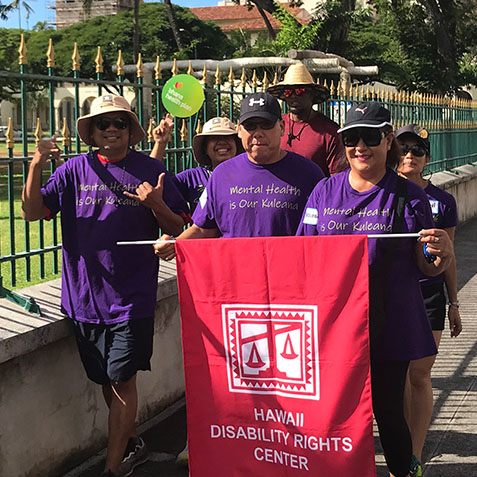
Honolulu, HI 96813
Phone/Fax: (808) 949-2922
Toll Free: (800) 882-1057
Accessible Communities
Accessibility
The Americans with Disabilities Act (ADA) mandates that state and local governments make their programs, services and transportation services accessible to and usable by people with disabilities.
People with disabilities have a right to accessible public facilities and polling places, to move about freely, to vote, to serve on juries, to enter into contracts, to own and dispose of property, and to become naturalized citizens.
Title III of the ADA establishes requirements for categories of public accommodations (private entities that serve the public) to make their goods and services accessible, including:
Accessible Categories
- Hotels, places that provide lodging
- Restaurants and bars
- Places of entertainment, such as theaters
- Places of public gathering, such as convention centers
- Retail, wholesale sales or rentals
- Service establishments (banks, stores, etc.)
- Terminals for public transportation
- Places of public display or collection (libraries, museums, etc.)
- Places of recreation (parks, zoo, etc.)
- Places of education
- Social service establishments (day care, blood bank, etc.)
- Places of exercise, recreation (golf courses, gyms, sports stadiums, etc.)
- Emergency shelters
Protection and Advocacy for Voter Access
People with disabilities are able to vote, have access to polling site within your precinct, (including entrances, exits, voting areas), can vote on request, provided information on the use of new voting technology or accessibility at polling place, and have an attendant (except an employer, agent or union representative) to assist in casting a vote.

About HDRC
WHAT DO YOU NEED?
Our tools pages contain our most popular and useful links all in one place.

What We Do
PROTECTING HAWAII'S DISABLED PEOPLE
We leverage state and federal programs to protect some of Hawaii’s most vulnerable citizens.
Who We Serve
CARING FOR OUR COMMUNITY
Our services educate and support those living with disabilities, as well as their friends, family, and caregivers.Contact Us
1001 Bishop St, Ste 1110
Honolulu, HI 96813
